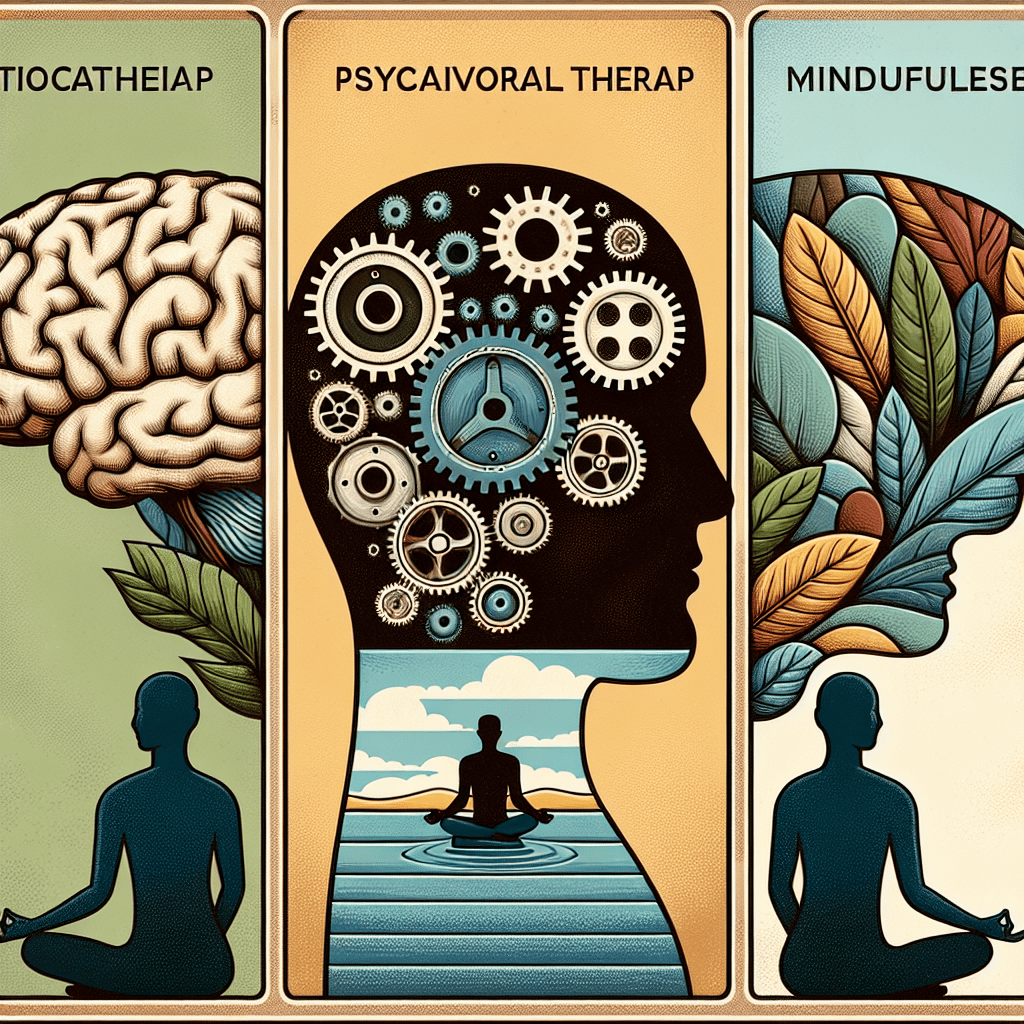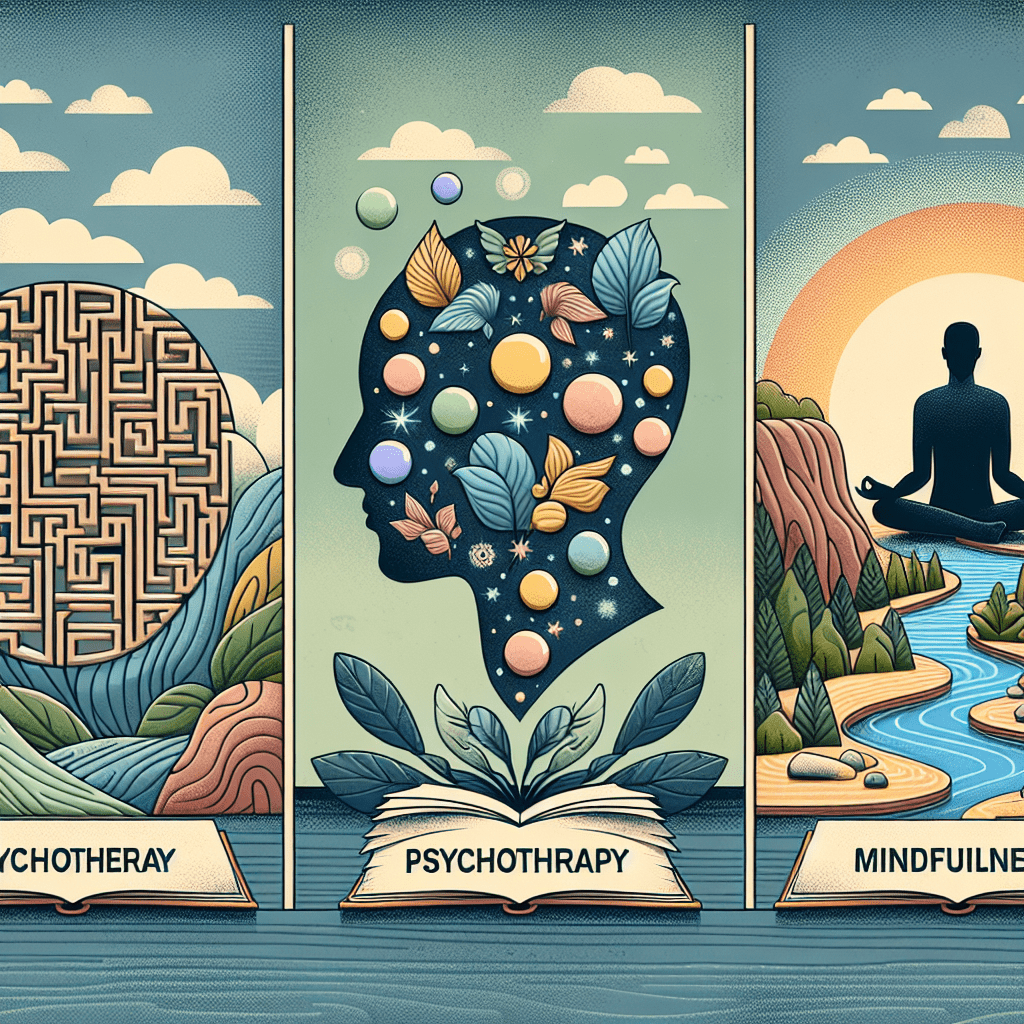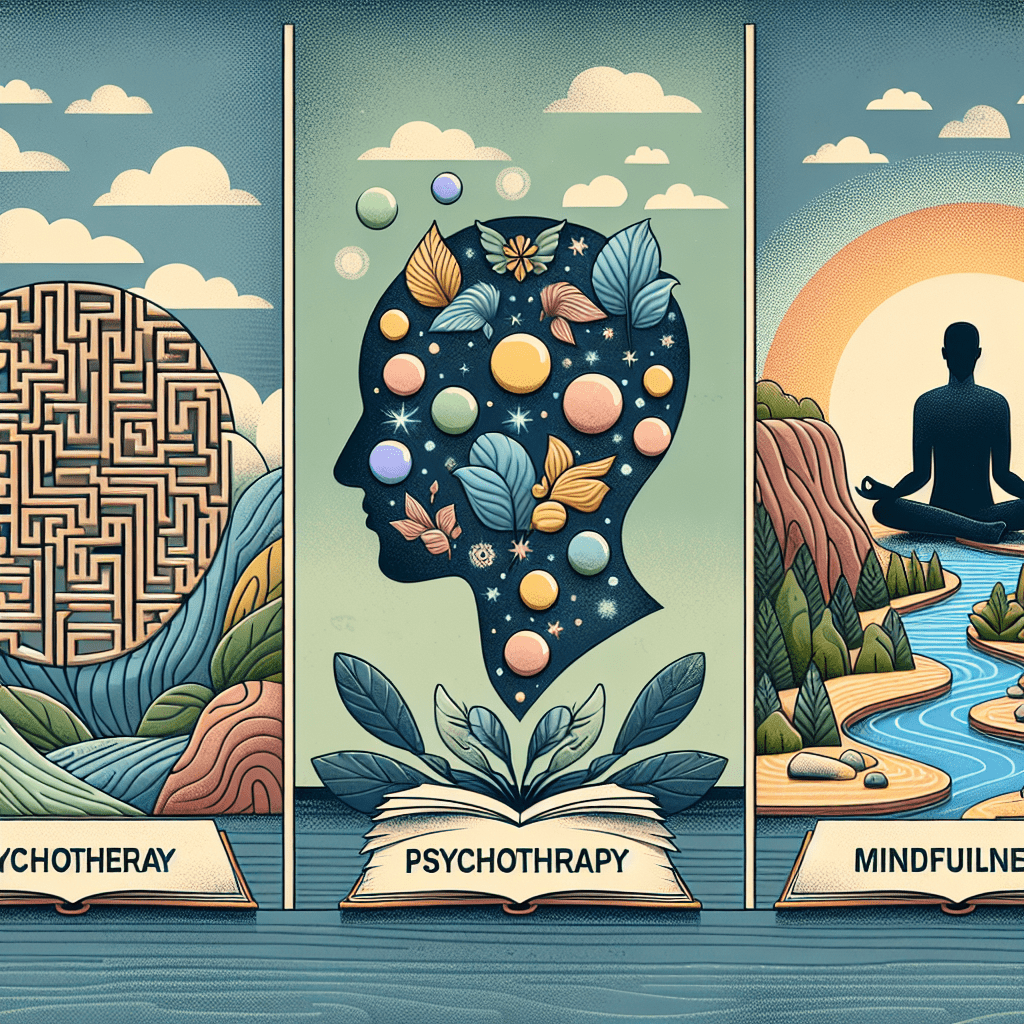If you or someone you know is struggling with depression, you may be wondering what therapy options are available to help navigate through this challenging time. Understanding the different therapy services for depression can provide valuable insight into the various approaches and techniques that can be utilized to provide support and relief. From cognitive-behavioral therapy to interpersonal therapy, this article explores the wide range of therapy services available to help individuals cope with and overcome depression.
1. Medication-Based Therapies
Conventional Antidepressants
Conventional antidepressants are a common treatment option for depression. They work by altering the levels of certain chemicals in your brain, such as serotonin and norepinephrine, to improve your mood. These medications are typically prescribed by a psychiatrist and can take several weeks to show noticeable effects. It’s important to follow the recommended dosage and consult with your healthcare provider regularly to monitor any potential side effects.
Atypical Antidepressants
Atypical antidepressants are another type of medication used to treat depression. Unlike conventional antidepressants, they target different neurotransmitters in the brain, such as dopamine and norepinephrine. These medications may have fewer side effects compared to conventional antidepressants, but it’s essential to discuss potential risks and benefits with your doctor.
Serotonin and Norepinephrine Reuptake Inhibitors (SNRIs)
SNRIs are a specific class of antidepressant medications that work by increasing levels of serotonin and norepinephrine in the brain. They are often prescribed for depression as well as certain anxiety disorders. SNRIs may be particularly helpful for individuals who experience both depressive symptoms and chronic pain.
Selective Serotonin Reuptake Inhibitors (SSRIs)
SSRIs are among the most widely prescribed antidepressant medications. They work by specifically increasing serotonin levels in the brain. SSRIs are generally well-tolerated and have been shown to effectively reduce symptoms of depression. They may be prescribed for various depression-related conditions, such as major depressive disorder and obsessive-compulsive disorder.
Tricyclic Antidepressants (TCAs)
Tricyclic antidepressants are an older class of antidepressant medications that are sometimes prescribed when other treatments have not been effective. While they can be effective in treating depression, TCAs have more potential side effects compared to newer antidepressants. Regular monitoring and close communication with your healthcare provider are important when using TCAs.
Monoamine oxidase inhibitors (MAOIs)
MAOIs are another older class of antidepressant medications. They work by blocking the enzyme monoamine oxidase, which helps to increase the levels of certain neurotransmitters in the brain. MAOIs can be effective in treating depression, but they have potential interactions with certain foods and medications. Regular blood pressure checks and dietary restrictions may be necessary while using MAOIs.
2. Talk Therapies
Psychodynamic Therapy
Psychodynamic therapy focuses on exploring how unresolved conflicts and past experiences may contribute to current depressive symptoms. This type of therapy aims to increase self-awareness and understanding of unconscious processes, helping you gain insight into the root causes of your depression. Through regular sessions with a trained therapist, you can work towards resolving underlying issues and developing healthier coping mechanisms.
Cognitive Behavioral Therapy (CBT)
CBT is a widely used and evidence-based therapy for depression. It focuses on identifying negative thought patterns and behaviors that contribute to depression and replacing them with more positive and adaptive ones. With CBT, you can learn practical strategies to change your thinking, manage stress, and improve problem-solving skills. This therapy typically involves regular sessions with a therapist and may include homework assignments to practice new skills in your everyday life.
Interpersonal Therapy (IPT)
Interpersonal therapy focuses on improving your relationships and social interactions to alleviate depressive symptoms. It recognizes that difficulties in interpersonal relationships can contribute to and be influenced by depression. Through IPT, you can explore and address unresolved conflicts, communication issues, and social support deficits. This therapy may be conducted over a defined period, with a focus on specific interpersonal problem areas.
Behavioral Activation Therapy
Behavioral activation therapy is a type of therapy that emphasizes increasing engagement in positive and rewarding activities. It aims to counteract the withdrawal and avoidance behaviors commonly associated with depression. By setting specific goals and gradually increasing pleasurable activities, you can regain a sense of enjoyment and accomplishment, which can help improve your mood over time.
Acceptance and Commitment Therapy (ACT)
ACT combines mindfulness-based techniques with principles of acceptance and commitment to help individuals with depression develop psychological flexibility. This therapy focuses on accepting unpleasant emotions and thoughts without judgment while committing to taking actions aligned with personal values. By cultivating mindfulness and engaging in meaningful activities, ACT can help you create a richer and more fulfilling life, even in the presence of depressive symptoms.

3. Electroconvulsive Therapy (ECT)
Preparation and Procedure
Electroconvulsive therapy, or ECT, is a treatment option typically reserved for severe or treatment-resistant depression. It involves delivering electrical currents to the brain, which induces controlled seizures. Prior to the procedure, you will undergo a comprehensive evaluation to determine if ECT is appropriate for you. The treatment itself is typically conducted in a hospital setting under anesthesia, and a series of sessions may be required to achieve optimal results.
Effectiveness and Safety
ECT has been shown to be highly effective in treating severe depression, particularly when other treatment options have been unsuccessful. However, it does carry some risks and potential side effects, such as memory loss and confusion. It is essential to discuss the potential benefits and risks of ECT with your healthcare provider to make an informed decision about this treatment option.
4. Transcranial Magnetic Stimulation (TMS)
Procedure and Process
Transcranial magnetic stimulation, or TMS, is a non-invasive procedure that uses magnetic pulses to stimulate specific areas of the brain associated with mood regulation. During a TMS session, a coil is placed on your scalp, delivering repetitive magnetic pulses. The procedure is typically conducted in an outpatient setting, and multiple sessions over several weeks are usually required to achieve optimal results.
Effectiveness and Safety
TMS has been found to be effective in treating depression, especially for individuals who have not responded well to other treatments. It generally has fewer side effects compared to medications or other invasive procedures. However, common side effects may include mild headache and scalp discomfort. TMS is generally considered safe, but it’s important to discuss any concerns or potential risks with your healthcare provider.

5. Light Therapy
Procedure and Usage
Light therapy, also known as phototherapy, involves exposure to bright light to regulate your body’s internal clock and improve mood. This therapy is often used to treat seasonal affective disorder, a type of depression that occurs during specific seasons, typically winter. Light therapy typically involves sitting in front of a specialized lightbox for a designated period each day, usually in the morning.
Effectiveness and Safety
Light therapy has shown to be effective in improving symptoms of seasonal affective disorder and may also be beneficial for other types of depression. It is generally safe when used correctly, but it’s important to follow proper guidelines regarding the intensity, duration, and timing of the light exposure. Side effects are typically minimal and may include temporary eyestrain or headache.
6. Exercise-Based Therapies
Aerobic Exercise
Regular aerobic exercise has been found to be beneficial for individuals with depression. Engaging in activities such as jogging, swimming, or cycling can help boost your mood by increasing the release of endorphins, which are natural mood elevators. Additionally, exercise promotes better sleep, reduces stress, and improves overall physical well-being, all of which can contribute to alleviating depressive symptoms.
Yoga and Mindfulness-Based Exercise
Yoga and mindfulness-based exercises, such as meditation and deep breathing techniques, have been shown to have positive effects on mental health, including depression. These practices help promote relaxation, reduce stress, and cultivate present-moment awareness. Integrating yoga or mindfulness exercises into your routine can provide a sense of calm and enhance emotional well-being.
Resistance Training
Resistance training, including weightlifting or bodyweight exercises, can also be beneficial for individuals with depression. It not only improves physical strength and fitness but also releases endorphins, similar to aerobic exercise. Resistance training can provide a sense of accomplishment and boost self-esteem, which can positively impact mood and overall mental well-being.
7. Alternative and Complementary Therapies
Acupuncture
Acupuncture is an ancient Chinese healing technique that involves the insertion of fine needles into specific points on the body. It is commonly used as a complementary therapy for various health conditions, including depression. Some studies suggest that acupuncture may help reduce depressive symptoms by promoting the release of endorphins and improving overall energy flow in the body. However, more research is needed to fully understand its effectiveness.
Massage Therapy
Massage therapy involves manipulating the body’s soft tissues to promote relaxation, reduce muscle tension, and relieve stress. While it may not directly treat depression, regular massage sessions can help alleviate physical symptoms associated with stress, such as muscle pain and tension. Massage can also promote overall relaxation and a sense of well-being, which can indirectly improve mood and mental health.
Herbal Medicine
Herbal medicines, such as St. John’s Wort, have been used for centuries to treat depression and other mood disorders. St. John’s Wort, in particular, has been extensively studied and has shown some effectiveness in reducing depressive symptoms. However, herbal medicines can interact with other medications, so it’s crucial to consult with a healthcare provider before using them. Additionally, the quality and purity of herbal products may vary, so it’s important to purchase from reputable sources.
8. Animal-Assisted Therapy
Equine-Assisted Therapy
Equine-assisted therapy involves interactions with horses under the guidance of trained professionals. This therapy can provide unique opportunities for emotional growth and healing, particularly for individuals struggling with depression. Interacting with horses can promote feelings of empathy, trust, and self-confidence. Engaging in activities such as grooming or riding horses can also provide a sense of purpose and accomplishment, contributing to overall well-being.
Psychiatric Service Dogs
Psychiatric service dogs are specially trained to provide support and assistance to individuals with mental health conditions, including depression. These dogs can offer companionship, emotional support, and help with certain tasks or activities. The presence of a service dog can reduce feelings of loneliness, anxiety, and depression, while also promoting a sense of security and stability.
9. Self-Help and Support Groups
Psychoeducation
Psychoeducation refers to acquiring knowledge and understanding about your condition, in this case, depression. Participating in psychoeducational programs or workshops can empower you with information about depression, its causes, symptoms, and available treatment options. Understanding your condition can help you actively engage in your treatment, make informed decisions, and effectively manage your mental health.
Online Support Groups
Online support groups can provide a safe and convenient platform for individuals with depression to connect, share experiences, and receive support from others facing similar challenges. These groups can help combat feelings of isolation and provide a sense of community. However, it’s important to ensure the reliability and credibility of online support groups, as the information shared may not always be accurate or helpful.
10. Collaborative Care Approaches
Primary Care-Mental Health Integration (PC-MHI)
Primary Care-Mental Health Integration is a collaborative care model that aims to enhance the coordination and delivery of mental health services within primary care settings. It involves close collaboration between primary care providers, mental health specialists, and other healthcare professionals to provide comprehensive and integrated care for individuals with depression. This approach ensures that mental health concerns are addressed alongside physical health needs, resulting in more effective and holistic treatment.
Collaborative Care Model (CCM)
The Collaborative Care Model is another collaborative approach that involves a team-based approach to managing depression. This model typically includes a psychiatrist, primary care provider, and a care manager who work together to provide comprehensive and personalized care. The care manager serves as a central point of contact, facilitating communication and coordinating various aspects of treatment, such as medication management and therapy referrals. The Collaborative Care Model has been shown to improve outcomes for individuals with depression by providing more accessible and coordinated care.
In conclusion, there are various therapy services available for individuals dealing with depression. Medication-based therapies, talk therapies, electroconvulsive therapy, transcranial magnetic stimulation, light therapy, exercise-based therapies, alternative and complementary therapies, animal-assisted therapy, self-help and support groups, and collaborative care approaches all offer different options to address this mental health condition. It’s important to work with healthcare professionals to determine the most suitable approach for your individual needs and preferences. Remember that seeking help and receiving support is a strength, and you don’t have to face depression alone.

